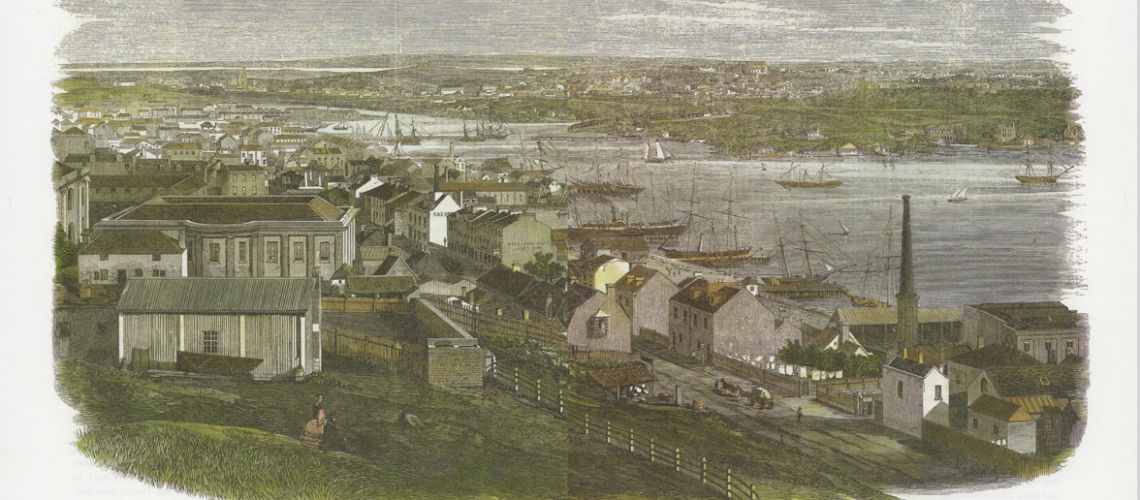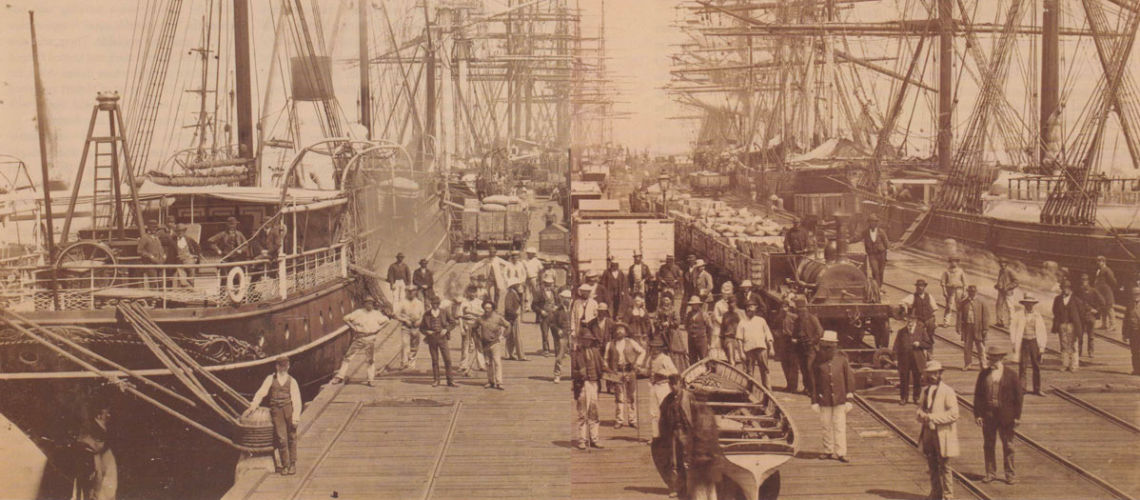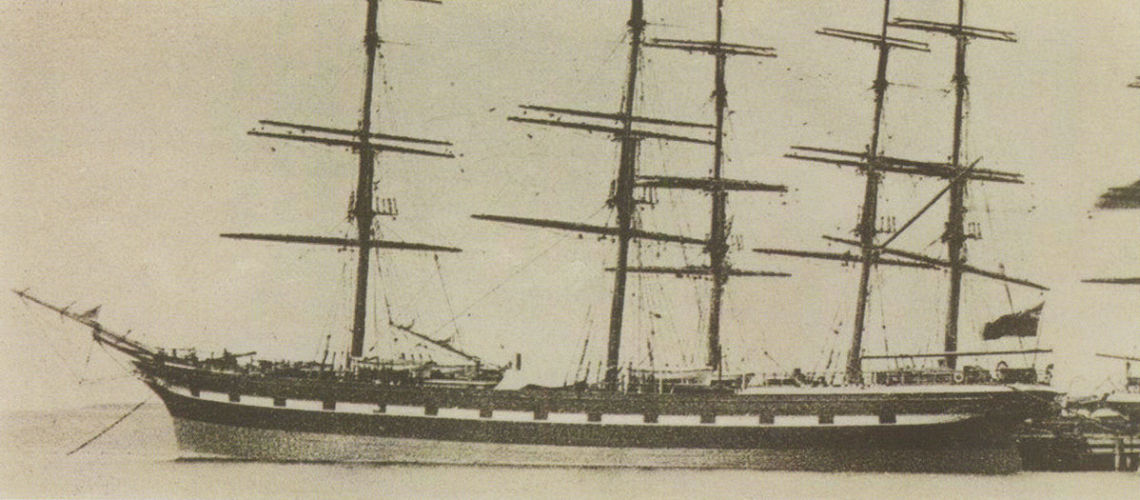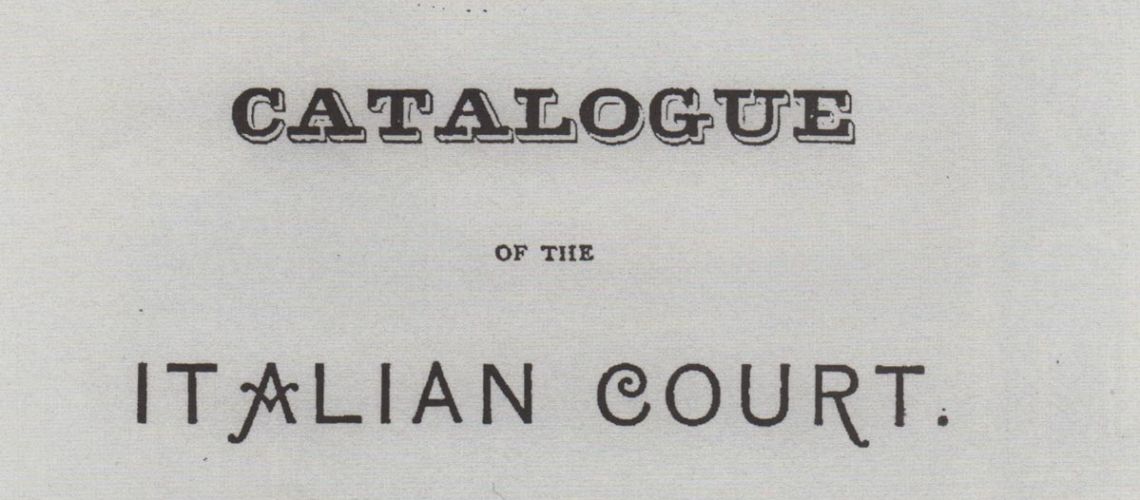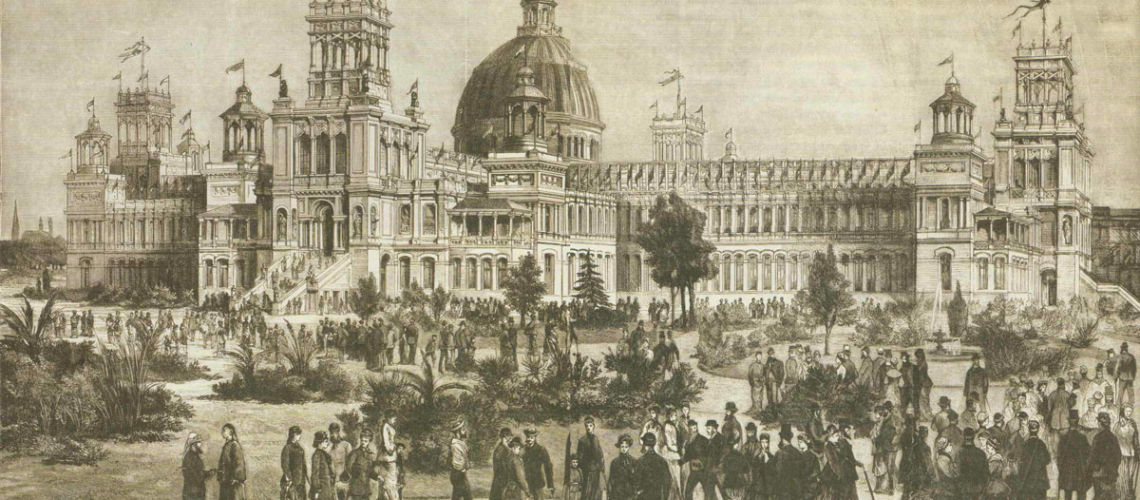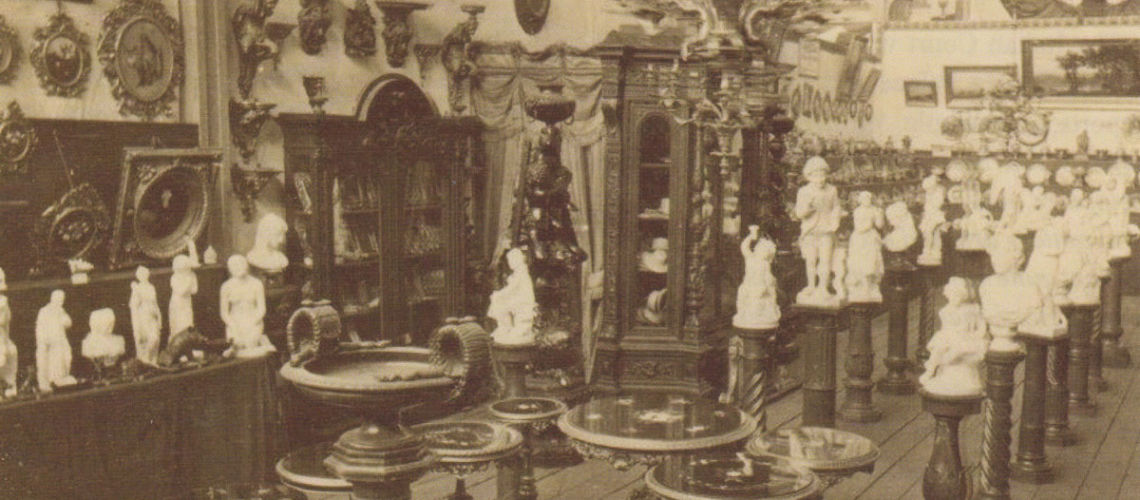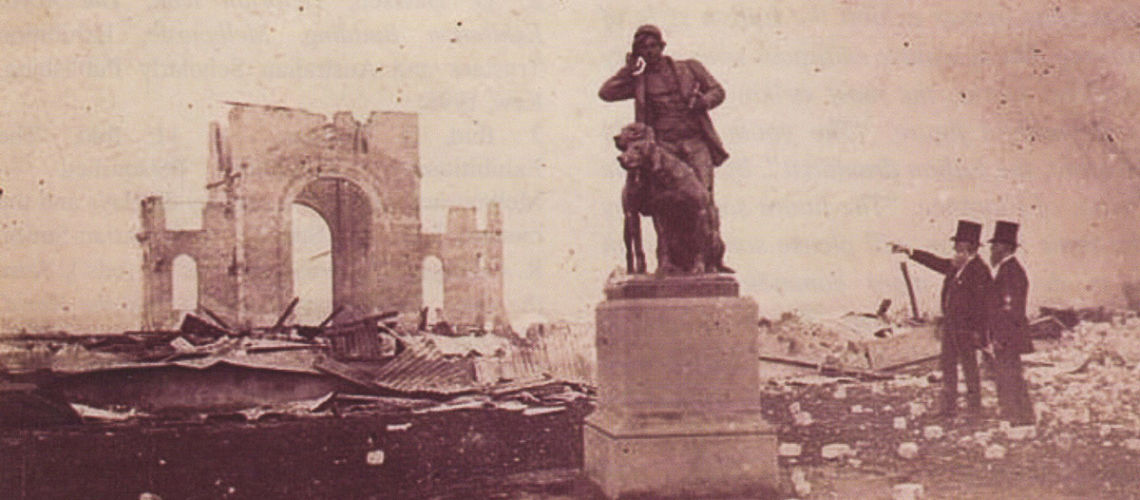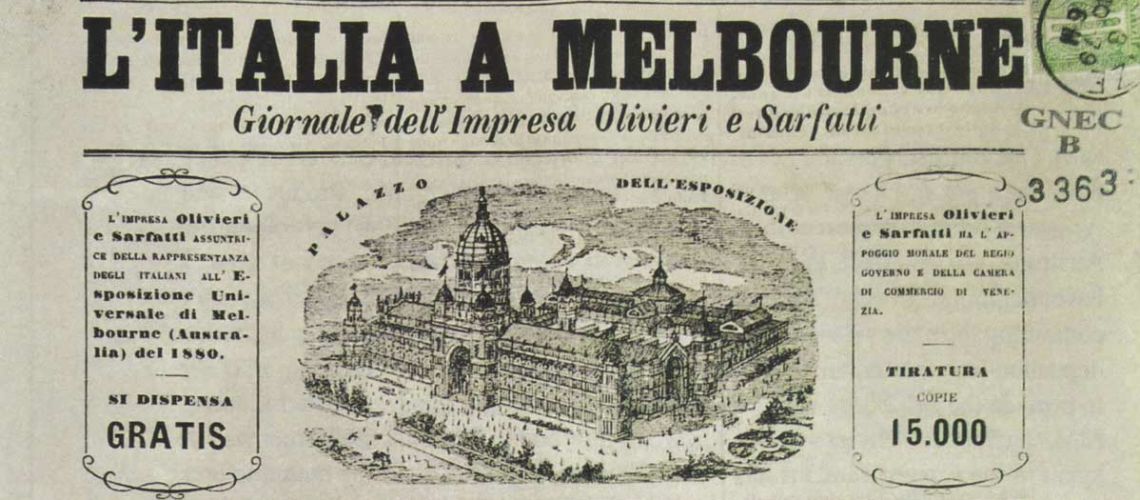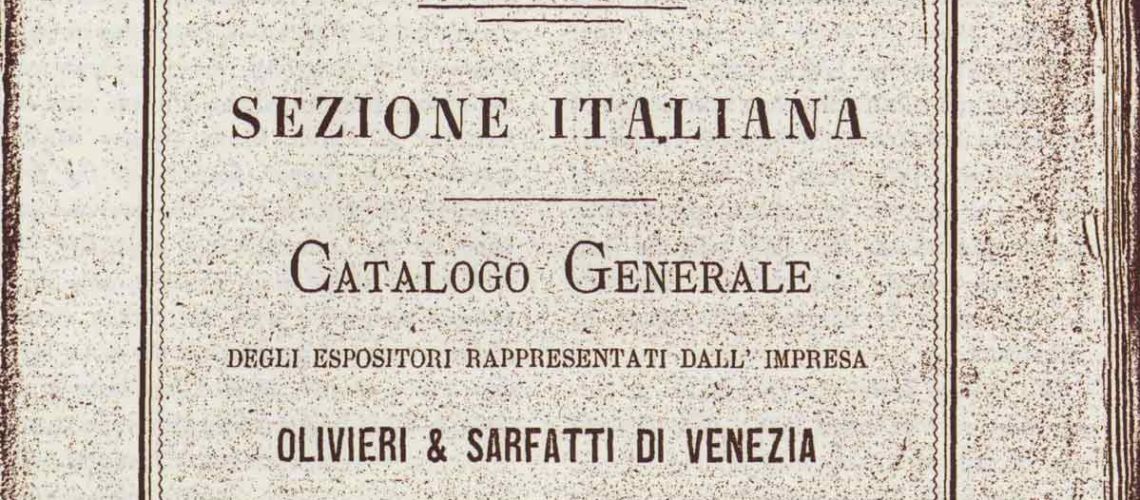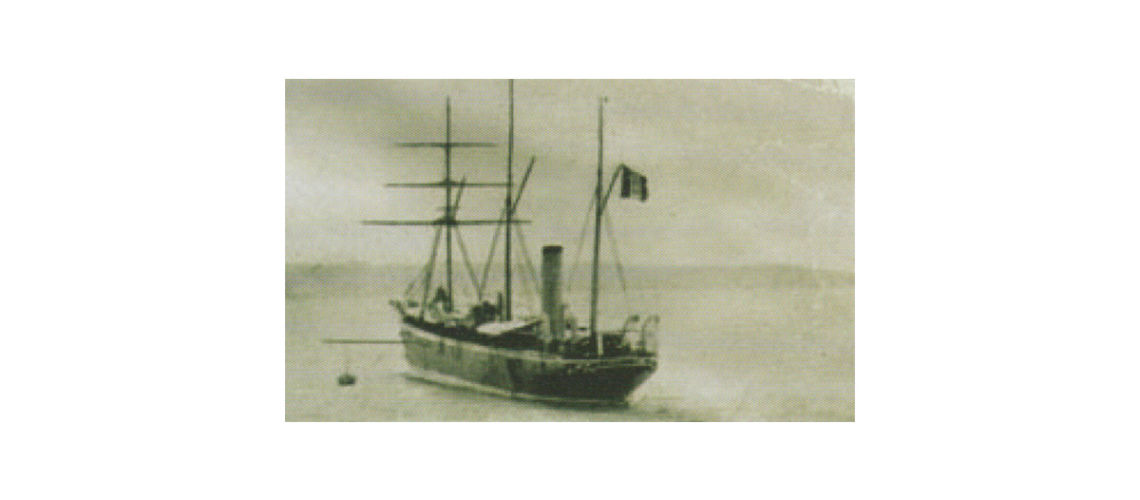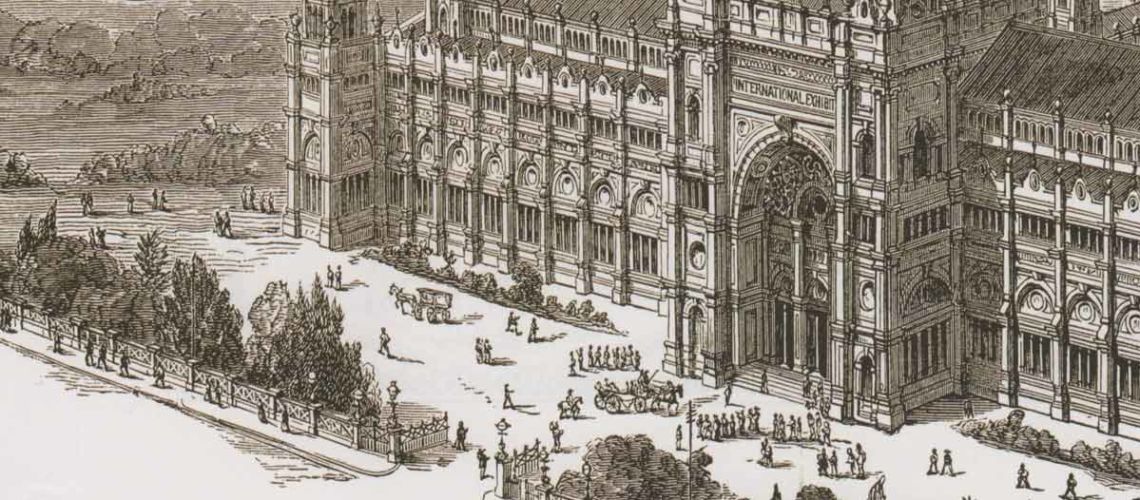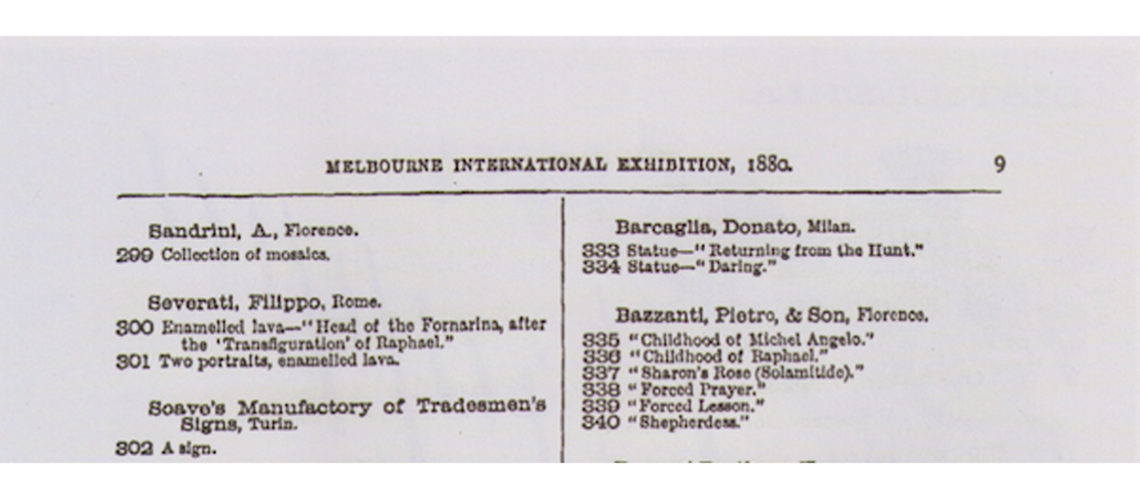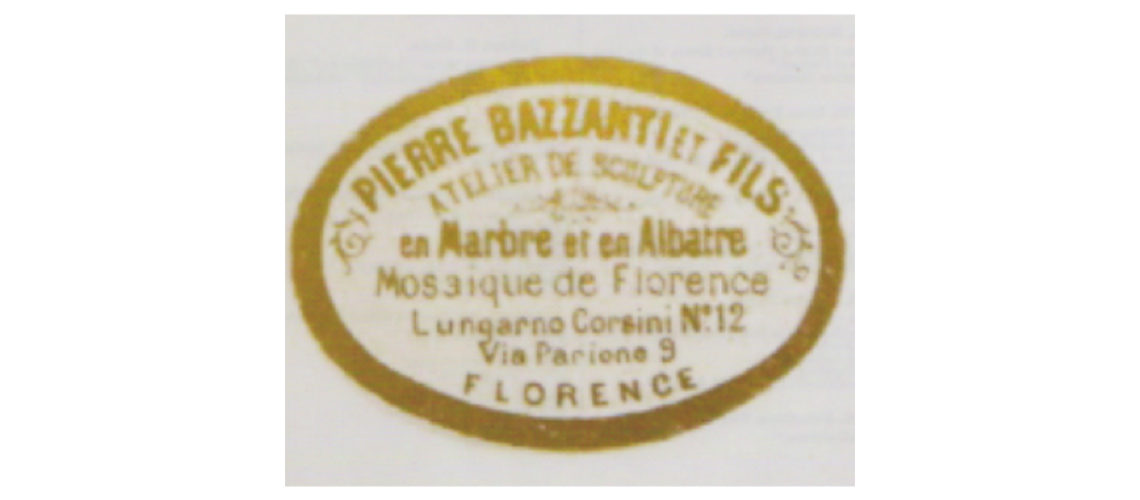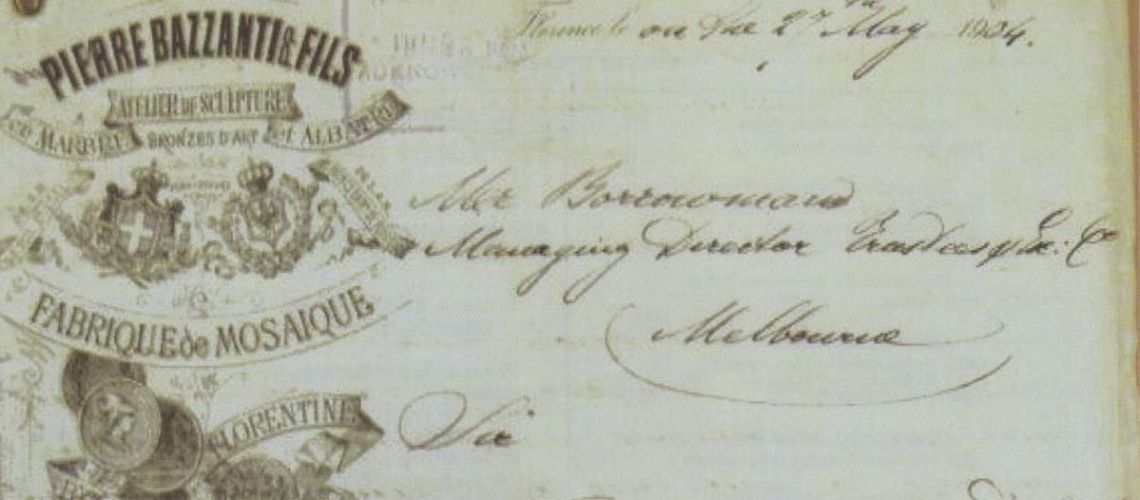Pietro Bazzanti's participation in International Exhibitions in Australia
The first documents relating to the arrival in Sydney of Italian ships date back to the mid-800s: in late August 1852, the Italian 150-ton brigantine called Rosa arrived in Sydney; from 1853 to 1855 the ship of the Kingdom of Sardinia disembarked and climbed several times from Sydney Destruction of 400 tons and the schooner Sofia of 120 tons.
Sidney in 1861
But the presence of Italians in Australia dates back to the early decades of the 1800s thanks to the regular arrival of ships carrying various types of goods, mainly due to the almost total lack of local producers. Every arrival was eagerly awaited, to also have news from the rest of the world, given that the first Australian telegraphic line dates back to 1872. From 1816 the sale of Italian decorative elements in iron was advertised in the newspapers; were imported from Italy, and sold to local ladies, fabrics, silk scarves, cloaks; some goods were also purchased in Italy by the British, and resold in Australia. Straw hats, buttons from Florence, etc. were imported from Italy. And in particular Italian marbles, sculptures in Carrara marble and alabaster, mosaics, replicas of Roman sculptures from Pompeii, Etruscan and Renaissance.
Melbourne’s port in 1878
1879 Sidney International Exhibition
The Italian Government was not interested in Italy’s participation in the exhibition, so much so that it even denied the sending of an official representative to the inauguration. He also refused any economic support to the Italian producers who participated. It was only the Chamber of Commerce of Florence that supported the group of producers and merchants who decided to send their goods.
Men and materials embarked in the ports of Livorno and Naples on the Ben Vorlich ship of 1504 tons, which landed in Sydney on 2 August 1879.
The Ben Vorlich
A neoclassical Victorian-style building with a dome, the Garden Palace, was built specifically for the Exhibition, in which the Italian pavilions measured around 1,000 square meters.
The newspapers (the South Australian Chronicle and Weekly Mail, the Telegraph and Shoalhaven Advertiser) wrote that the main attraction were the sculptures in Carrara marble of the Studio Bazzanti from Florence , beautiful replicas of classical statues .
Palace of the Universal Exposition in Sydney
A stand of Italian products
On September 22, 1882, while in Florence the Bazzanti Sculpture Studio was by the owners Pietro and Niccolò set up partly as a sculpture sales gallery, in Sydney a huge fire completely destroyed the Garden Palace in less than an hour with all its contents .
After the fire of 1882
1880 Melbourne International Exhibition
Also for the subsequent Sydney International Exhibition the Italian Government took no interest in it. The reins were taken in hand by the Venetian firm Olivieri and Sarfatti who became the Italian exhibitor agency and took charge of collecting goods in Italy, packing and transporting them to Melbourne, organizing and positioning goods in Melbourne, and shipping them back to Italy at the end of the exhibition.
The “Royal Transport Europe” ship of 680 tons commissioned by the King of Italy for the shipping of Italian goods at the Exhibition, sailed from Venice on 12 June and arrived in Melbourne on 6 September 1880. It made a stopover in Brindisi, Port Said, Aden, Ceylon , Singapore, Java, Albany.
Reale Trasporto Europa
Italy had an excellent position in the Melbourne Exhibition Building, with corner salons on the ground floor; in total around 50,000 square meters.
Melbourne Exhibition Building
The Bazzanti Gallery exhibited 6 marble sculptures, including the so-called “Michelangelo Giovane”. It was very successful.
It was thanks to this exhibition that 24 years later, in 1904, the sale of a series of replicas of marble classics began between the Pietro Bazzanti Gallery and Son and the so-called Felton Bequest, that is, the Bequest legacy with whose funds were purchased museums for the National Gallery of Victoria.
1904 letter from the Pietro Bazzanti Gallery & Son at Bequest Legacy
Since the early 1900s, relations with Australian customers have continued to this day; we particularly like to remember the bronze replica of the Porcellino by Tacca that the Marchesa Fiaschi Torrigiani bought in 1969 from the Bazzanti Gallery to donate it to the Sydney Hospital, and a second bronze boar that in 2007 reached the city of Mandurah not far from Perth.

